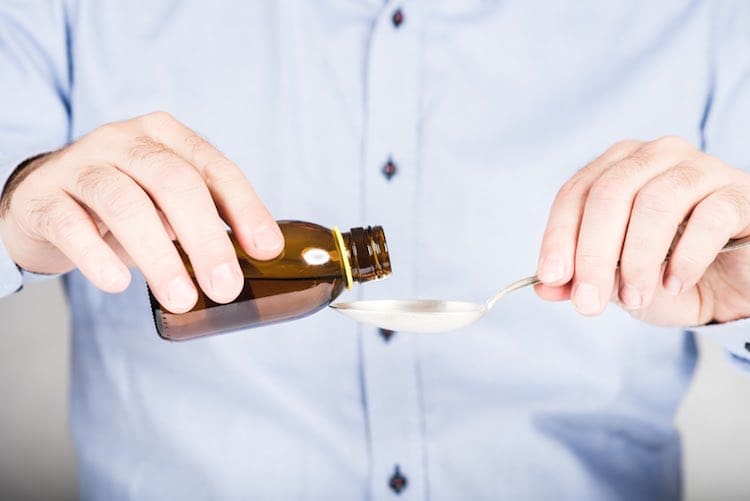A productive (‘wet’ or chesty) cough is a cough that produces mucus or phlegm. When you have a productive cough, the aim of treatment is not to suppress the cough (which is an important way of clearing infected secretions from the lungs), but to improve the efficiency of the cough to help clear the airways. Specific treatment of productive coughs depends on the cause and duration of the cough.
Cough medicines
Medicines that can be used to treat productive coughs include expectorants and mucolytics. Cough and cold medicines should not be given to children younger than 6 years of age. Ask your doctor or pharmacist about whether cough medicines should be given to children aged 6 to 11 years.
Expectorants
Expectorants are substances that help to loosen and expel mucus from the lungs. They include guaifenesin, ammonia, senega, sodium citrate and ipecacuanha.
Side effects can include nausea, vomiting, diarrhoea, dizziness, headache and rash.
Mucolytics
Mucolytics, such as bromhexine and acetylcysteine, help break down thick, sticky chest phlegm, making it easier to cough up. Side effects can include nausea, vomiting, diarrhoea, dizziness, headache, rash and chest tightness.
Combination products
Cough medicines that contain both an expectorant and a mucolytic are available.
Some combination cold and flu products contain an expectorant and/or mucolytic. Cold and flu combination medicines usually also contain a decongestant (to relieve a blocked or stuffy nose). Other ingredients can include antihistamines, pain relievers and cough suppressants. Combination products with a cough suppressant are generally not suitable for people with a productive cough.
Always take care to check the active ingredients in any combination product. If you take a combination product and then also take additional medicines, you risk doubling up on ingredients. For example, added paracetamol may lead to an overdose of paracetamol if other paracetamol products are also being taken.
Also, some ingredients may not be suitable for people with certain medical conditions. For example, pseudoephedrine (a decongestant) may cause a rapid heartbeat, anxiety, restlessness, insomnia and a dry mouth. It should not be used for people with high blood pressure, heart problems, hyperthyroidism, diabetes, or urinary retention.
Steam inhalation
Steam can also help break down mucus causing a chesty cough and help you to cough it up, but care should be taken to avoid burning yourself with hot water or steam.
Use a room vaporiser (make sure that it is out of the reach of children), or sit with your head over a bowl of hot water and a towel over your head to inhale steam. Menthol, camphor or eucalyptus can be added to the water. Children should try sitting in a hot, steamy bathroom rather than use a bowl of hot water to reduce the risk of burns.
Physical therapy
Physiotherapists can help in the treatment of chesty coughs, especially in people with chronic (ongoing) productive coughs.
Breathing devices and exercises
To help clear secretions from the lungs, physiotherapists get people to blow out as long and as hard as they can against resistance — such as through a lightly pinched straw. This triggers a deep cough, which can help clear the lungs.
Chest physiotherapy
Chest physiotherapy can help loosen mucus and make it easier to cough up. Physiotherapists use cupped hands to clap, or percuss, the front and back of the chest. They sometimes also use nebulised inhalations of concentrated saline (salt water) to stimulate coughing.
Self-help
If you have a productive cough, try the following self-help measures:
- drink plenty of fluids, which can help thin the mucus and make it easier to cough up;
- take a hot, steamy shower to help break down the mucus (phlegm) and make it easier to cough up; and
- get plenty of rest.
If you are a smoker, giving up smoking will help.
What not to do
Things you should NOT do when you have a productive cough include the following.
- Do not take a cough suppressant as this suppresses the cough, causing a build-up of mucus (phlegm) in the lungs and increasing the risk of infection.
- Do not take sedating antihistamines, as these tend to dry up the secretions and leave them in the lungs.
- Do not take combination cough mixtures with a cough suppressant and an expectorant.

